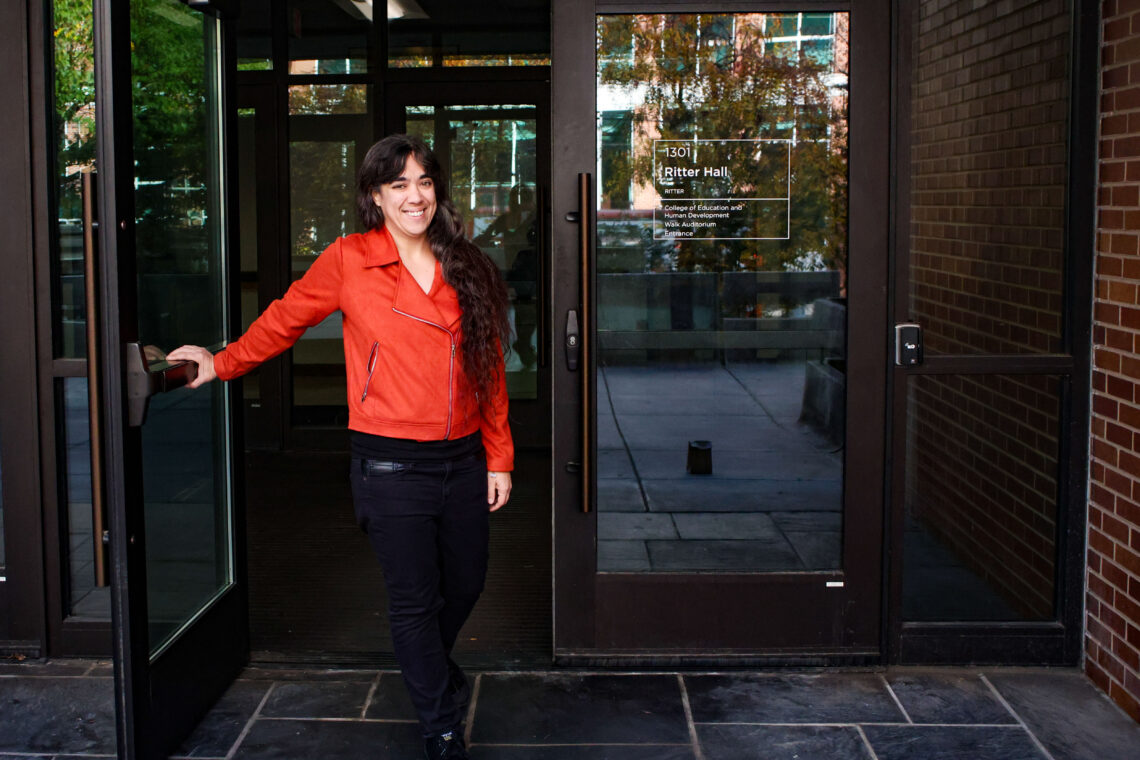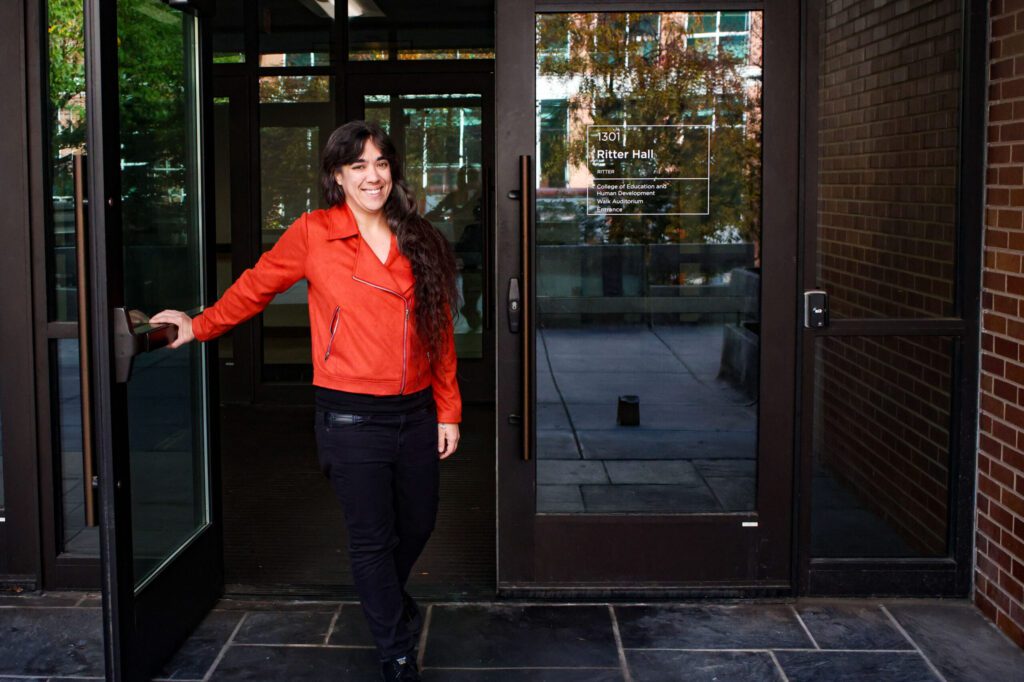
When Liza Meiris was 10 years old, she scored the SAT score of a high school senior. By middle school, she was skipping class and had a 1.4 GPA. She loved learning but hated the education system, and noticed similar fates in the predominantly Black and brown students she grew up with in Germantown.
When she was pushed into dual enrollment in her junior year of high school, Meiris saw the opportunity to bring excitement back into secondary education.
“I want to build a school for kids like me, who were intelligent and failing,” said Meiris, a 2010 bachelor of secondary education and 2015 master’s in educational leadership and administration alumna. “Because obviously they need something else and nobody is handling this.”
Meiris began teaching at Olney High School in 2011 and switched to Tech Freire Charter High School in 2020. Most recently, she left formal teaching to join PA Youth Vote, a nonpartisan organization that brings youth and educators together for policy changes in Pennsylvania, and Community Action Hero Group Pennsylvania, a nonprofit that helps African American women with civic life, building financial stability and achieving equitable health outcomes.
“A lot of the Black people in Pennsylvania are in Philadelphia, so I think it’s right that we start here,” Meiris said. “We need to give more resources to the Black community, but we are spending a lot of time talking [instead of acting] about other stuff.”
Meiris gradually learned students benefited from one-on-one time and autonomy. In the classroom, her teaching methods differ from traditional education because she lets her students decide what they specifically want to write about.
“Because not every student is good at a standardized test, I want literally the opposite of that,” Meiris said. “I want every kid to have an individualized plan for what they want to do.”
Meiris wanted to participate directly activism for Black communities and joined the Cheltenham branch of the National Association of the Advancement of Colored People in 2020. After George Floyd’s murder in May of that year, Meiris was a primary organizer for a memorial that gathered more than 500 people.
Edward Graham, former president of the Cheltenham branch of the NAACP recognized Meiris’ work and asked if she would be the organization’s secretary. Meiris accepted the nomination and was officially elected in 2022.
“Whenever you discount your work, you are a slave to the buyer,” Graham said. “I wish we had more Liza’s, we need educators who care, people who are a walking encyclopedia of facts.”
Meiris left the NAACP in 2025, because of political and internal conflicts. She then joined Community Action Hero Group Pennsylvania.
There she met Nicole Keels-McGruder, who welcomed any hard worker with open arms regard.
“We are pushing for diversity,” said Keels-McGruder, executive director and CEO of Community Action Hero Group Pennsylvania. “We can’t be hypocritical. We want the different perspectives, which is why Liza is so important to our organization”
Meiris believes civic engagement is not only a responsibility for adults, but encourages her students to learn by actively participating in the causes they believe in.
Since Meiris started teaching, she wanted her students to be free thinkers while understanding the experiences of the Black community.
“When we tell students to have an opinion, we need to teach them how to have an opinion,” Meiris said. “You don’t have to agree with me, but I’m going to have an opinion, and you should too.”
The digital age has allowed students to access more information in schools than ever before, but access to that information is still a problem for many communities.
Forty-seven percent of Philadelphia students live in households that can’t meet their basic needs without going into debt or cutting essentials, according to a February 2025 study by the education advocacy group Children First.
“We have the knowledge, and we have the drive and the motivation,” Meiris said. “Sometimes the money just isn’t there for the students.”
Meiris grapples with the poverty and underfunding within the Philadelphia area — the reason she finds for the lack of education put out into schools in Black and brown neighborhoods.
With more than a decade of teaching under her belt, Meiris believes that the student is not at fault for the poor education schools may offer.
“We should be careful and mindful and intentional about who is doing what,” Meiris said. “Be aware that race is always a factor.”

